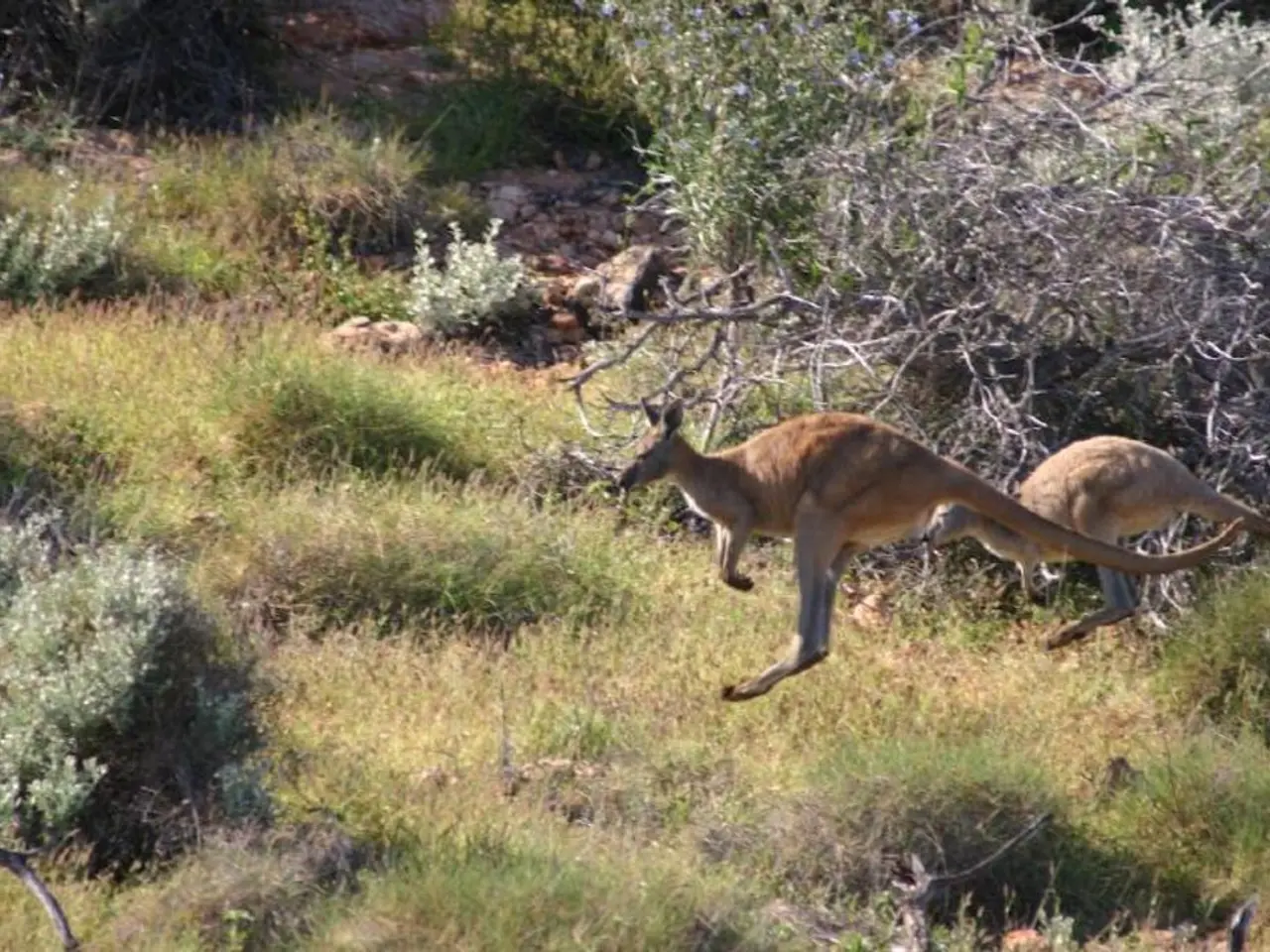Australia's tourism sector embracing eco-friendly practices: An exploration of the sustainable tourism initiative in Sydney.
In the heart of Australia, Sydney is making significant strides in its pursuit of a green economy. With ambitious targets such as a 70% reduction in greenhouse gas emissions by 2030 and net zero emissions by 2035, the city is committed to climate action and sustainable urban living. Additionally, 50% of electricity demand is aimed to be met by renewable sources by 2030, contributing to cleaner air, economic resilience, and healthier populations locally, as well as supporting global environmental stability.
This transition is not limited to modern practices. The city is also honoring First Nations wisdom and sustainable practices, deeply rooted in the region's history. Traditional customs of First Nations people, which respect waterways, animals, and the spiritual aspects of place, are being recognised and integrated into the city's green economy. Aboriginal-led initiatives like Margret Campbell’s tours exemplify this, sharing Indigenous knowledge and perspectives on sustainability and the environment, thereby honoring Indigenous heritage while educating the broader public on ecological and cultural stewardship.
Sydney Airport is a prime example of this integration, spending 24 percent more on Indigenous suppliers than in 2022, as part of its 2030 net-zero plan. Margret Campbell, the founder of Dreamtime Southern X, an Aboriginal-led tour company, fuses ancient land stewardship practices with Sydney's sustainability push. Her tours reveal what sustainability looks like through a 65,000-year lens, highlighting the importance of every plant, rock, flora, fauna, and marine life in the area.
Complementing these cultural initiatives, Sydney and Australia at large are seeing substantial investments in renewable energy, rooftop solar expansion, and clean energy infrastructure. The new $344 million expansion of the Art Gallery of New South Wales has a six-star Green Star rating, using stormwater recycling and native plant roofs. Tunnel boring machines at Sydney Metro West run entirely on renewable energy, and boutique hotels in Surry Hills source power from regional solar farms and compost waste.
Sydney's sustainability efforts are not only beneficial for the environment but also for the economy. These developments both reduce carbon emissions significantly and stimulate economic growth through clean technology deployment. In fact, Sydney's sustainability initiatives are starting to define it as a tourism destination, with Midden by Mark Olive, an Indigenous restaurant inside Sydney Opera House, serving lemon myrtle-crusted barramundi while sharing stories of bush-tucker foraging.
However, there is still more to be done to fully realize Sydney's vision of sustainability. Margret Campbell, a pioneer in this field, emphasises the need for continued efforts. Overtourism still strains resources in Sydney, and green certifications need stricter oversight to ensure authenticity and effectiveness.
Despite these challenges, the evidence of Sydney's green practices can be found throughout the city. Sydney now ranks second in the Asia-Pacific region on the Global Destination Sustainability Index, and Melissa Snape of tour operator Collette states that Sydney's sustainability efforts are about using ancestral knowledge to solve modern problems. The National Indigenous Training Academy of Voyages Indigenous Tourism has placed over 2,500 First Nations people in tourism jobs, and solar-powered resorts in the Outback fund health care and education for Anangu communities.
Modern Sydney is finally remembering the stories and places of every plant, flora, fauna, and marine life, as explained by Margret Campbell. The city's green economy is robustly advancing through ambitious climate targets, renewable energy investment, and the integration of First Nations sustainable practices and wisdom, setting a precedent for other cities to follow.
- In Sydney, Australia, the first nations' wisdom and sustainable practices are being honored and integrated into the city's green economy.
- Traditional customs of the Aboriginal people, deeply rooted in the region's history, are being recognized and incorporated into Sydney's pursuit of a green economy.
- Margret Campbell's tours in Sydney exemplify the integration of Aboriginal-led initiatives, education on ecological and cultural stewardship, and the importance of sustainability.
- The Sydney Airport is increasing its investments in Indigenous suppliers as part of its net-zero plan, demonstrating the city's commitment to integrating traditional practices with modern sustainability efforts.
- Renewable energy, rooftop solar expansion, and clean energy infrastructure are receiving substantial investments in Sydney and across Australia, supporting environmental science and climate-change mitigation.
- Students can explore online education platforms offering courses on sustainable living, travel, environmental-science, education-and-self-development, personal-growth, and adventure-travel to expand their knowledge on green and cultural practices.
- India-produced Dreamtime Southern X tours, led by Margret Campbell, showcase what sustainability looks like through a 65,000-year lens, encouraging sustainable-living ideas.
- Sydney's commitment to sustainability is not only transforming the city's environmental landscape but also creating opportunities in lifestyle, home-and-garden, and travel industries while promoting lifelong learning and learning from other cultures.




